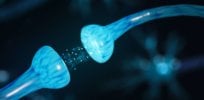Psychology Today

Why does time slow down when we’re afraid?
There is evidence that experiences of slowed-down time—such as when someone is in grave danger—may not simply be “in our ...

Why exercising more doesn’t necessarily lead to weight loss
Scientific studies have shown overwhelmingly that a 25 percent reduction in daily calorie intake will significantly improve your health far ...

The intriguing brain science of left-handedness
Handedness is one of many functional left-right differences in the brain. Specifically, in left-handers, the motor cortex in the right ...

Facial structure and sex: Women can intuitively read features to assess whether a man is interested in a long-term relationship or a casual romp
Wouldn’t it be great if you could tell, just by studying [someone's] face, whether they’re interested in a long-term relationship ...

Neuroscience of emotions: what we ‘see’ — smiles, frowns, puckered brows — are actually social constructs that your brain has learned from infancy
If you show pictures of actors portraying [common] emotions to people in all corners of the earth, they pretty reliably ...

Viewpoint: A case for moderate exercise — We get the most cognitive benefits by ‘performing activities that we evolved to perform’
Your body clearly benefits from a daily moderate level of exercising. Does your brain care? Yes, your brain does pay ...

Here is the consensus theory of why Neanderthals went extinct
Noting over “a dozen serious hypotheses'' about the enigmatic disappearance of our nearest cousins [the neanderthals, researchers] conducted a poll ...

Our ‘evolutionary superhighway’: How the brain connects smells and memories
Whereas other sensory systems are thought to have been re-routed during human evolution, [a new] study suggests that olfactory-hippocampal functional ...

Why cooperation based on reciprocity is unique to humans
It has long been known that human cooperation is so successful in large part because of our reciprocity. We help ...

Viewpoint: Reducing the number of Down syndrome births is a form of eugenics
No one should underestimate the complexity and difficulty of deciding whether to test for Down syndrome or terminate a pregnancy ...

How honest are you? When do you think it’s okay to deceive? It may be hard-wired
Humans are a social species. There is pretty compelling evidence that without cooperation, people are much less likely to survive ...

How do physiological processes produce a conscious state of mind?
I believe there are two reasons why we have failed to solve the hard part of the problem [of consciousness] ...

‘Extinguishing of other species is one of our defining traits’: How humans are destroying the world’s animals, insects and plants
If extinctions are events, they are so only in geological time, and geological time is rather vast. The late Devonian ...

How evolution and genetics shape human morality
There is a large body of research demonstrating and delineating the complex moral instincts of young children, including babies far ...

The growing tachysensia community: What is it like when our mind’s speedometer goes awry?
Drive for an hour at 65 mph on an interstate alongside other vehicles moving at similar speeds. Then take an exit ...

Masculinity crisis? Social roles and what defines manhood are in flux
Usually, masculinity is defined in terms of various lists of traits or characteristics. However, there is no authoritative list of such ...

Why do so many dogs eat human poop?
Molly, our beloved Labrador retriever, certainly loved to eat poop. Sometimes she would chow down on her own feces, and ...

Lithium comeback: The use of the ‘penicillin of psychiatry’ to treat bipolar disorder is resurging
A quick literature search for lithium therapy reveals a multitude of recent articles on its superior efficacy in the treatment ...

Why did menopause evolve?
To explain menopause, any hypothesis needs a plausible evolutionary scenario. It is reasonable to assume that the chimp/human common ancestor ...

Could COVID-19 cause wives to cheat? How pandemics affect sexual desire
The coronavirus has impacted society and affected our behaviour in many ways from an increase in our use of social ...

Why it’s so hard to call someone a sex addict: ‘Who’s to say what’s normal or abnormal’
Today we have a tiny number of true sexual compulsives who do things like getting repeatedly arrested for public masturbation. We ...

Second psychopharmacology revolution: New drugs could change the way we treat depression
The field of psychopharmacology was born during the 15 years between 1955 and 1970. Now, nearly 60 years later, the field of psychiatry may ...

5 things we get wrong about psychopaths
There are a number of myths that pervade pop culture regarding psychopaths. Here is my take on some of the ...

Viewpoint: New psychological guidelines targeting toxic masculinity are ‘profoundly anti-male’
Amidst the many challenges faced by many North American fathers in their efforts to maintain some semblance of meaningful involvement ...

Viewpoint: Psychiatry still hindered by all the things we don’t understand about the brain
The heart is not a mystery. We know a great deal (not everything) about how it pumps blood around the ...

Viewpoint: What is ‘consciousness’ and what role does it play in evolution?
One of the biggest challenges in evolutionary science is to explain the evolution of consciousness. While that is widely recognized, ...

6 things we don’t understand about psychopaths
Journalists and fiction writers and even psychologists and criminologists have gone to great lengths to both mystify and make monsters out of ...

Using genetic tests to tailor antipsychotic treatments to individual patients
Scientists are tapping individuals’ genetic profiles to learn which patients will respond to antipsychotic medication for schizophrenia. The pursuit is ...

